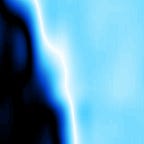Origins of My Understanding of Charles Sanders Peirce
This is a collection of bits that work, I hope, to introduce the reader to some crucial insights of what Charles Sanders Peirce called Pragmaticism.
INTRODUCTION
Peirce: “If I had a son, I should instill into him this view of morality (that is, that Ethics is the science of the method of bringing Self-Control to bear to gain satisfaction) and force him to see that there is but one thing that raises one individual animal above another, — Self-Mastery; and should teach him that the Will is free only in the sense that, by employing the proper appliances, he can make himself behave in the way he really desires to behave. As to what one ought to desire, it is, I should teach him, what he will desire if he sufficiently considers it, and that will be to make his life beautiful, admirable. Now the science of the Admirable is true Esthetics.” (As quoted in Brent, Peirce: A Life, p49).
1
Oddly enough it was Brent, whose biography of Peirce I am not in love with because it is, in a word, binary, who explained to my initial satisfaction the working of Threes which I must assume to be the basic structure of semiosis or semiotics at least for Peirce. To condense, the First as excitation the Second as Blunt Truth and the Third as experimental hypothesis or theory of how one might practically move forward beyond One and Two. I thought I have actually been operating and thinking this way in my own life and that I got into trouble mainly when I reverted to the binary. I thought that most of the back and forth in Congress resulted from being caught in the binary. I thought Obama is a Peircean either consciously or not.
2
I see logic as a utility within consciousness, even the abductive logic that Peirce lauds in ordinary modes of thought. Consciousness is the state within which we make decisions according to the values we hold, which may or may not be conscious. The more conscious they are the better I think.
I see continuity as having less to do with consciousness than simple chronology. Everything is in motion from time itself to all within time. Continuity is a sort of hint about teleology just as logic is a hint about goodness just as consciousness is a hint about freedom and choice which accords with Peirce’s general sense of possibility and chance. The theological implications of all this are immense.
3
We all live on the basis of different triggers. For me Brent was big in spite of his awkward and wooden effort to create a binary portrait of Peirce. If you can get the updated book it is worth a look.
4
This remarkable text is drawn from Joseph Brent, Charles Sanders Peirce: A Life, Bloomington and Indianapolis 1993, Page 331. “There are only three fundamental kinds of relations: monadic, dyadic and triadic; … by combining triads, all relations greater than the number three can be generated; and … all those of a greater number than three can be reduced to triads. Since, in addition, triads cannot be reduced to dyads, nor dyads to monads, monads, dyads and triads constitute the fundamental categories of relations. At the same time, triads are made up of dyads and monads, and dyads of monads. Hence, in logical order, monads are first, dyads second, and triads third, which gives a second group of relations: first, second, and third. Hypostatic abstraction provides a third group of relations: firstness, secondness, and thirdness, which contain first second and third, which in turn contain monads, dyads, and triads. Altogether, these elements constitute the abstract,formal mathematical categories and relations that constitute the elements of thought.”
And the remarkable truth: When we move beyond two we enter the realm of Triadic Philosophy.
5
“Parsing Peirce’s Neglected Argument
I think within the NA text there is ample basis for inferring that at the time of its writing CSP had long practiced what he advocated — a damningly unstructured mode of thinking that he advocated almost universally and certainly for persons untrained in the philosophy that is the basis for most Peirce studies. Rising from play, pure play, linking the barely described universes of experience, but saying enough to imply a triadic semiotic originating in vagueness and progressing through rude shock to a creative linkage that might have the chance to move toward activation, even habit. If this is not meta-physical, then what is? I think CSP has been virtually ignored regarding what might be called his populist or everyman assertions. Turning to revelation and mysticism, I am inclined to credit Brent with insight into the way CSP dealt with the realization of his situation and his experience in the Episcopal Church and to call that mystical in the sense of it being something that siezed him, not something he simply realized. I do not think revelation means more than a description of that experience. I do not think the NA could have been written without that foundational event. I do not see science as an object of worship for Peirce, rather as a simple acknowledgement that things, perhaps extending as far as the mystical, can be measured and evaluated in terms of their practical effect.
